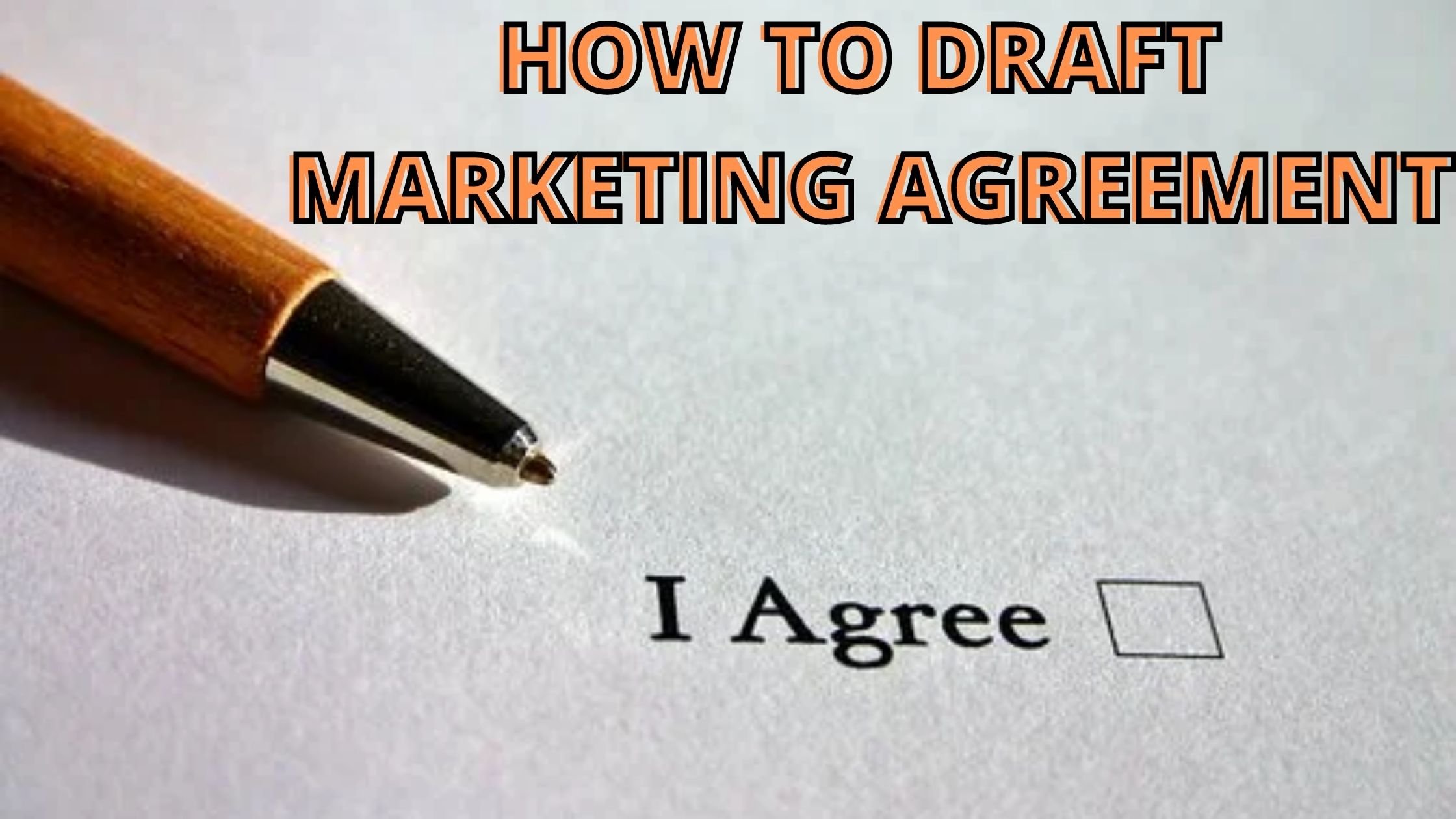HOW TO DRAFT A MARKETING AGREEMENT?
A business startup by an entrepreneur needs to be known to the customer base once it enters the market. The advertisement or promotion of goods and services of the startup company is known as the marketing of the products. Marketing includes market research about potential consumers and promoting the goods and services accordingly. Initially, the company needs to create goodwill in the market by promoting its products as it forms a profitable base for them.

HOW TO DRAFT A MARKETING AGREEMENT?
A business startup by an entrepreneur needs to be known to the customer base once it enters the market. The advertisement or promotion of goods and services of the startup company is known as the marketing of the products. Marketing includes market research about potential consumers and promoting the goods and services accordingly. Initially, the company needs to create goodwill in the market by promoting its products as it forms a profitable base for them. However, in the long-run, if the company demands a steady flow of income and profit it needs to hire a marketing agency in order to develop a variety of marketing strategies and to make their products accessible to the public at large. These marketing agencies are responsible for the entire process of sales, promotion, branding, and analysis of the business and its product demand in the market.
In order to hire a marketing agency, the company needs to draft a bona fide legal document that incorporates all the functions, obligations, rights, and tenure of the marketing agency. This legal document is known as a Marketing Agreement. As the name suggests, a marketing agreement is a form of a contract signed between both the parties to bind them by the clauses mentioned in it along with a mutual understanding between the two. These agreements outline every detail of the commercial relationship including the remunerations, obligations, and expectations from both the parties. It acts as written proof of the business relationship both the parties have entered into. However, like any other agreement, a marketing agreement requires certain essential clauses to ensure a smooth flow of business transactions. These clauses are mentioned below.
-
PARTIES INVOLVED: The basic ingredient of every agreement is to mention the parties involved in it. The name of the parties along with their relationship ie. if the marketing agency has been hired for a fixed period of time or for a particular purpose should be mentioned. This provides clarity regarding the liabilities of both parties along with their rights and obligations.
-
REMUNERATION AND PAYMENT TERMS: This clause provides a clear picture of the remuneration paid by the company to the marketing agency. It describes the payment terms on the basis of the services provided by the agency. If the work is for a particular purpose, it has to be mentioned in the agreement and the payment is to be made accordingly. The expenditure incurred by the agency for the purpose of marketing should also be reimbursed by the company. Thus this clause includes both expenditure and remuneration terms.
-
SCOPE OF WORK: The agreement must outline the scope of work that is expected to be done by the marketing agency. This is a very crucial clause as the remuneration of the agency depends upon it. It ensures whether all the duties and obligations mentioned have been fulfilled by the agency or not. It basically helps in avoiding future disputes as it is a written record of the work that is to be done. The various functions of the agency are mentioned under this clause including market analysis and effectiveness of the work done by them.
-
INTELLECTUAL PROPERTY RIGHTS: All the ideas given by the marketer must be trademarked along with the logo of the company. This clause should provide clarity regarding the rights of both parties regarding intellectual property. Once the term of the agreement ends, which party has the right over which intellectual property must also be specified in this clause. It helps in avoiding disputes regarding the rights and ensures a smooth flow in the marketing process.
-
CONFIDENTIALITY: When the entrepreneur hires a marketing agency, it provides it with all the necessary information. There are times when such information is supposed to be confidential in order to protect the ideas of the company. Hence the confidentiality clause is added in most of the marketing agreements to ensure the safety of the private information of the company. It also mentions the time period for which the information should remain confidential even after the agreement has expired or been terminated by either of the parties. This clause is extremely essential to protect the startup from any exploitation in the market.
-
TENURE: This clause specifies the time period after which the agreement expires and has to be renewed if both the parties agree to it with mutual understanding. Both the parties are free from their duties and obligations once the term of the agreement ends as the contract is not legally binding anymore, except for the confidentiality clause. Any breach of contract can also lead to termination of the agreement, however, in such cases, the party who commits the breach is held liable for the damages. This clause also provides the liability or penalty to be imposed on the parties for any breach of contract whatsoever.
The marketing agreements drafted should not be a copied version of any other contract, in fact, they should be tailor-made for each company. Therefore, professional expertise must be used for such purposes. Signing a marketing agreement burdens both parties with a lot of responsibilities, but at the same time, it helps them build a positive image of the company in the market and therefore strengthens the relationship between both the parties.
BY-
Ridhika Kapoor












